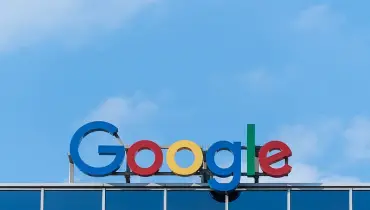Ace Your Next Web Headline with a 'Power Hook'

A hook is that interesting part of your headline that immediately enthralls and grabs reader's attention. Traditional print media headlines are designed to catch your eye and stand out from the competition on newsstands. On the other hand, headlines used online require more than just a few cleaver words to get at least a passing glance on the Internet.
For example, The Boston Globe's November 23, 1963, headline the day after President John F. Kennedy was assassinated read: Shock...Disbelief...Grief. While the headline aptly captured the feelings of an entire nation in three words and ordinary people could be seen gathered around newsstands mourning and in shock over the death of President Kennedy, that headline wouldn’t get much traction on the Internet today without a proper hook and mention of what actually happened and to whom.
The headline would only earn clicks from people who went directly to The Boston Globe's website looking for that particular story. Whether you write headlines for articles, e-mail or ad copy, your headlines need a powerful hook or power hook to compel people to stop and read your message.
The challenge of writing powerful Web headlines
Writing headlines for the web can be as challenging an intellectual problem as solving a complicated math problem. That’s because headlines use only a few words to immediately grab attention and give the reader a true sense of the story or news item at hand. The words you use should transform into content titles that are not only enthralling, but also shareable through social media and interesting enough to stand out in RSS feeds.
Moreover, Internet users don’t normally browse more than a few pages of a website looking for interesting stories to read like they do with newspapers. They find interesting stories online by way of searches on search engines like Google and through recommendations and reviews by trusted sources. Your headline, therefore, needs to be optimized for both top search engine results ranking and human readers who are actively searching for content online.
Optimizing headlines for search engines helps you get found online, while optimizing headlines for human readers gets you read. News outlets know this and some routinely offer two headlines on longer articles to cater to both needs. One headline, often on the first page of search engines results, has a clever hook to attract human readers while the other headline with the actual content meant for search engines is more quotidian.
The secret to headlines that “hook” human readers
Nic Newman, a journalist and digital strategist who played a key role in shaping the BBC's internet services for more than a decade, pointed out a few examples where the BBC News website used two headlines to specifically attract search engine crawlers (bots that browse the World Wide Web for purposes of indexing web pages) and human readers.
One of the headlines he mentions that targets a human reader is: "Tulsa star: The life and career of much-loved 1960's singer." The other headline for the same story meant for search engines is: "Obituary: Gene Pitney." Notice how the first headline targeted at a human reader name-drops to illuminate the story and garb attention.
Consider this other NYTimes headline: “Population study finds change in the suburbs.” Compare the NYTimes headline with Gawker’s headline for the same story: “Suburbs: the new slums.” Notice how Gawker's headline is not too bloggy, too complicated or too clever.
Gawker’s headline uses clever juxtaposition of “suburbs” and “slums” and the word “new,” which suggest we are going to read something interesting and fresh if we click on the headline link. This subtle suggestion hooks the reader in and gives the content a better click-through rate.
Here’s the secret: the most clickable headlines emphasize implications rather than events. They feature a human being (whether yourself or someone else) and or incorporate a real human element.
Hack it with a human element
Hack your next headline with a real human element to generate more clicks on your content. One of the best ways to do this is to make people aware of the implications rather than the events of your story or message. It is not about what happened, but about what it means for the reader. Remember the mantra: “What’s In It For Me?”
What’s in it for me is the subconscious inspiration that informs people’s decisions based on prediction of the rewards and risks associated with our actions. We are inspired to do things not just for tangible rewards, but also for feelings like pride, compassion, safety and thrill. If you can answer this question concisely in your headline, you might just have a winner!
Enhance it with power words
Marketers are acutely aware that some words lead to high engagement and conversion than most. These “power words” stir the sub-cortical and limbic areas of the brain (commonly known as the “Lizard Brain”) where our deepest and most instinctive impulses originate. If you can frame your headlines with one (or more) of these power words, you are onto something that can significantly enhance your headline.
Here are top power words you can use in your web headlines to tap into your readers' “Lizard Brain” and trigger the emotional response you want:
- Top
- Why
- How
- Will
- Best
- Worst
- Secret
- You
- Your
- New
- Proven
- Easy
- Ultimate
- Instantly
- Reasons
Of course, you can write terrific headlines that don't have a human element or a power word. But, adding these two elements gives your headlines a boost that can make the difference between a wildly viral post (worth gold on the Internet) and a stale post worth little if anything online.
See Also: 5 Simple Ways to Make Your Headlines More Clickable (Without Being Manipulative).










![Best Format for Encoding Marketing Videos [node:title]](/sites/default/files/styles/video_thumbnail_bottom/public/best-video-format-for-encoding-marketing-videos.png?itok=FTv4oQvW)









